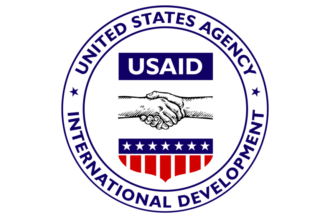The UK naval presence in the Indo-Pacific has become a key talking point in global security discussions. Recently, tensions flared when the Royal Navy’s HMS Spey sailed through the Taiwan Strait, prompting a swift response from China. Beijing labeled the move a “deliberate provocation” and warned that it undermines regional peace and stability.
- What Justifies the UK’s Patrol in the Taiwan Strait?
- How Is the UK Strengthening Its Indo-Pacific Naval Strategy?
- What Is Taiwan’s Response to the British Naval Activity?
- What Is China Doing in Response to Western Naval Activity?
- What Are the Global Implications of the UK’s Indo-Pacific Role?
- Conclusion: Navigating a Complex Maritime Future
This patrol marks a rare and bold maneuver by a British warship. The UK clarified that HMS Spey’s transit was pre-planned and conducted in accordance with international law. Officials reiterated that such freedom of navigation operations (FONOPs) are legal and essential for supporting an open, rules-based international order.
Taiwan praised the British patrol, welcoming it as a sign of international support for maritime freedom. The response from both Beijing and Taipei underscores the region’s growing strategic importance and highlights the role of external powers like the UK in maintaining stability.
What Justifies the UK’s Patrol in the Taiwan Strait?
The Royal Navy’s presence in the Taiwan Strait aligns with its broader mission to uphold freedom of navigation worldwide. According to the UK Ministry of Defence, the HMS Spey patrol was part of a long-term deployment strategy, demonstrating the country’s commitment to global maritime security.
The patrol reflects a resurgence of the UK naval presence in Indo-Pacific, an area increasingly central to international politics. This is not the first time the UK has conducted such an operation; in 2021, HMS Richmond sailed through the same waters, which also drew condemnation from China.
British officials maintain that their operations are not intended to provoke but to reassure allies and uphold lawful access to international waterways. “Our naval patrols are transparent, routine, and grounded in the principles of freedom of navigation,” said a Royal Navy spokesperson. Read another article on Foxconn Detentions in China Alarm Taiwan
How Is the UK Strengthening Its Indo-Pacific Naval Strategy?
The UK naval presence in Indo-Pacific extends beyond a single ship. This patrol coincides with the deployment of a powerful British carrier strike group led by HMS Prince of Wales. This marks one of the most ambitious military deployments of the decade, involving around 4,000 UK military personnel and engagements with 30 partner nations.
Prime Minister Keir Starmer emphasized the importance of the mission, describing it as a display of strength and unity. “We are sending a clear message—to our allies and adversaries alike—that the UK stands committed to global peace, maritime security, and cooperation,” Starmer stated during a press briefing.
The carrier strike group will conduct joint exercises with India, the United States, Malaysia, and Singapore. These drills aim to enhance interoperability and prepare the participating nations for a wide range of maritime security challenges, from humanitarian assistance to deterrence operations.
Additionally, two Royal Navy offshore patrol vessels—HMS Spey and HMS Tamar—are permanently stationed in the Indo-Pacific. Their continuous presence underlines Britain’s long-term strategic interests in the region.
What Is Taiwan’s Response to the British Naval Activity?
Taiwan has welcomed the UK’s involvement, viewing it as essential for countering aggressive moves by China. The UK naval presence in Indo-Pacific offers political and symbolic support to Taiwan, which continues to face military pressure from Beijing.
Taiwan’s foreign ministry praised the patrol as a positive and timely gesture. “We value the UK’s contribution to freedom of navigation in the Taiwan Strait. It reflects a strong commitment to international law and regional peace,” a ministry spokesperson said.
Taiwanese President Lai Ching-te, who recently took office, has adopted a tough stance against Beijing’s policies. He has described China as a “foreign hostile force” and launched efforts to curb its influence on the island. These developments have further fueled tensions in the already sensitive Taiwan Strait.
What Is China Doing in Response to Western Naval Activity?
China has responded assertively. Its government accused the UK of “hyping up” the HMS Spey’s journey and “distorting legal principles.” Chinese officials warned that the People’s Liberation Army would respond to any “foreign interference.”
In recent months, China has conducted several high-profile military exercises near Taiwan, including a live-fire drill in April that simulated strikes on major ports and energy infrastructure. These actions are widely interpreted as strategic messaging aimed at deterring international support for Taiwan.
Moreover, two Chinese aircraft carriers are now conducting simultaneous drills in the Pacific near Japan, marking a historic escalation in China’s naval posture. Japan has expressed concern, citing regional stability and the risk of unintended incidents.
What Are the Global Implications of the UK’s Indo-Pacific Role?
The growing UK naval presence in Indo-Pacific illustrates a broader trend among Western nations. Countries such as France, Canada, and Australia are also ramping up their naval engagements in the region. The Indo-Pacific is fast becoming a central arena for geopolitical competition.
Experts argue that a greater collective presence helps deter unilateral actions and promotes a balance of power. These missions not only ensure maritime freedom but also support efforts to manage conflicts peacefully through multilateral cooperation.
At the same time, increased naval deployments bring a higher risk of misunderstandings and confrontations. As more countries assert their interests, the need for strong communication channels and diplomatic dialogue becomes increasingly important.
Conclusion: Navigating a Complex Maritime Future
The UK naval presence in the Indo-Pacific is a strategic move that reflects Britain’s commitment to upholding international law and supporting regional allies. While China interprets this as a provocation, the UK and its partners see it as a stabilizing force.
As the Indo-Pacific region evolves into a major geopolitical battleground, naval diplomacy and military cooperation will play a crucial role in maintaining peace. The UK’s engagement in the region sends a powerful message: freedom of navigation and respect for sovereignty are non-negotiable.
The months ahead will test the resolve of all parties. However, with careful planning, open dialogue, and coordinated action, a clear path forward remains for a more stable and secure Indo-Pacific.








